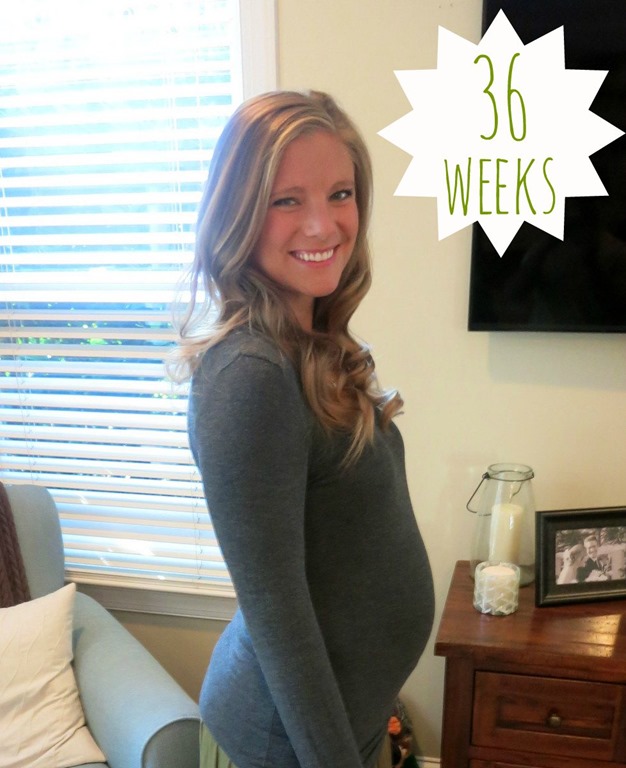
Table of Contents
What Happens At 36 Weeks Pregnant?
Congratulations! You’ve made it to 36 weeks pregnant, and you’re now in the final stretch of your pregnancy. At this point, most of your baby’s major organs and systems are fully developed, and they’re just putting on the finishing touches before they’re ready to make their grand debut.
One of the most significant changes at 36 weeks pregnant is your baby’s weight gain. Your little one is now around 18.7 inches long and weighs about 5.78 pounds, which is about the size of a head of romaine lettuce. As your baby continues to pack on the pounds, their skin will become less wrinkly, and they’ll start to look more like a newborn baby.
What Are The Baby’s Development Milestones At 36 Weeks Pregnant?
At 36 weeks pregnant, your baby is busy preparing for life outside the womb. Here are some of the development milestones your baby will hit:
- Brain Development: Your baby’s brain is continuing to grow and develop in preparation for life outside the womb.
- Improved Coordination: Your baby’s movements are becoming more coordinated as they practice using their arms and legs.
- Strengthened Immune System: Your baby’s immune system is becoming stronger, thanks to the antibodies they’re receiving from you.
- Muscle Development: Your baby’s muscles are getting stronger, which will help them with sucking and swallowing after birth.
- Positioning: Your baby is most likely in the “head down” position by now, ready for delivery.
What Are The Symptoms At 36 Weeks Pregnant?
As your baby continues to grow and your due date approaches, you may experience some new or worsening symptoms. Here are some of the most common symptoms at 36 weeks pregnant:
- Braxton Hicks Contractions: These “practice” contractions may become more frequent and intense as your due date approaches.
- Shortness of Breath: As your baby grows, they may put pressure on your lungs, making it harder to breathe.
- Increased Discharge: You may notice an increase in vaginal discharge as your body prepares for delivery.
- Swollen Feet and Ankles: The increased weight and pressure on your body can cause swelling in your feet and ankles.
- Difficulty Sleeping: As your due date approaches, it can be challenging to get comfortable and fall asleep.
What Should You Do At 36 Weeks Pregnant?
Now that you’re getting closer to your due date, there are a few things you should consider doing at 36 weeks pregnant:
- Take Care of Yourself: Rest, eat well, stay hydrated, and continue to exercise (with your doctor’s approval) to keep yourself healthy and prepared for delivery.
- Prepare for Labor: Start packing your hospital bag, create a birth plan, and familiarize yourself with the signs of labor.
- Stay Connected With Your Doctor: Attend all scheduled appointments, and talk to your doctor about any concerns or questions you may have.
- Get Your Home Ready: Set up the baby’s nursery, wash and organize their clothes, and stock up on essentials like diapers and wipes.
The Countdown To Delivery Is On!
You’ve made it to 36 weeks pregnant, and you’re in the final stretch of your pregnancy. Your little one is almost ready to make their grand debut, and you’re doing everything you can to prepare for the big day. Keep taking care of yourself, stay connected with your doctor, and get your home ready – you’ve got this!
Frequently Asked Questions
1. Is It Safe To Deliver At 36 Weeks Pregnant?
While most babies born at 36 weeks pregnant are healthy and fully developed, some may have complications related to their prematurity. Your doctor will monitor your pregnancy closely and recommend delivery if they believe it’s in the best interest of you and your baby.
2. How Can You Tell If You’re Having Contractions At 36 Weeks Pregnant?
Braxton Hicks contractions feel like a tightening or squeezing sensation in your uterus. They’re usually painless and irregular, and they’ll go away if you change positions or take a walk. If you’re having regular, painful contractions that are getting closer together, it may be a sign that you’re in labor.
3. What Should You Include In Your Hospital Bag At 36 Weeks Pregnant?
When packing your hospital bag, you should include items for yourself, your partner, and your baby. Some essential items to include are comfortable clothing, toiletries, snacks, phone chargers, a camera, and baby clothes and blankets.
4. How Can You Tell If You’re In Labor At 36 Weeks Pregnant?
The signs of labor at 36 weeks pregnant include regular contractions that get closer together, a “bloody show” (a small amount of blood-tinged mucus), your water breaking, and increased vaginal discharge.
5. What Should You Do If You Go Into Labor At 36 Weeks Pregnant?
If you think you’re in labor at 36 weeks pregnant, call your doctor or midwife right away. They’ll likely tell you to come to the hospital or birthing center, where they can monitor your labor and your baby’s health.
